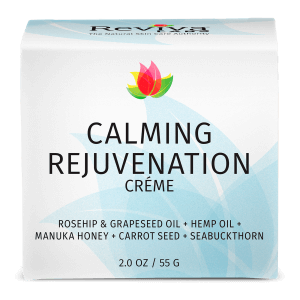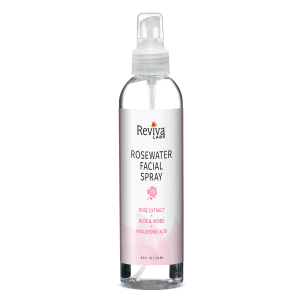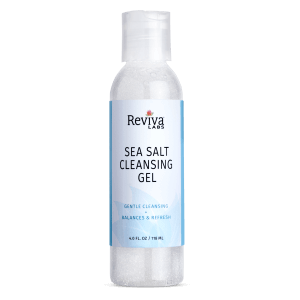Ingredients, Natural, Reviva Labs, Skin Care
Understanding How Pollen and Allergies Affect Your Skin
Allergies can profoundly impact the skin, often causing discomfort and visible reactions. Pollen, a common allergen, is particularly notorious for triggering skin responses during certain times of the year. This article explores how allergies, particularly those caused by pollen, affect the skin, the science behind these reactions, and how to manage them effectively.
The Link Between Pollen and Skin Reactions
When pollen counts are high, many people experience more than just the typical hay fever symptoms; they also notice changes in their skin’s condition. Pollen can provoke various skin allergies, commonly manifesting as hives, eczema flare-ups, or contact dermatitis. The skin acts as a barrier against environmental agents, including allergens. However, when pollen comes into contact with the skin, it can disturb this barrier, leading to irritation.
Pollen grains carry proteins that can be allergenic to sensitive individuals. When these allergens bind to antibodies in the skin, they trigger the release of histamine, a chemical that causes itching, swelling, and a host of other allergic symptoms. This reaction can be exacerbated by the skin’s exposure to other irritants and pollutants, which may worsen during high pollen seasons.
Impact of Allergies on Skin Health
Allergic reactions can significantly affect the skin’s health and appearance. Chronic exposure to allergens like pollen not only triggers immediate symptoms but can also lead to long-term skin damage. For example, persistent itching and scratching can break the skin, leading to potential infections and scarring.
Moreover, inflammation caused by allergic reactions can disrupt the skin’s normal repair processes and barrier functions. This disruption can make the skin more vulnerable to other environmental insults, further compromising its health and appearance. Managing these reactions is crucial, not only to alleviate discomfort but also to maintain the skin’s overall health and integrity.
Managing Skin Allergies Caused by Pollen
The management of skin allergies involves both preventative measures and active treatments. Avoiding allergens is the first and most straightforward strategy. During high pollen seasons, keeping windows closed, using air purifiers, and showering after being outdoors can significantly reduce skin exposure to pollen.
For treatment, over-the-counter antihistamines can help manage the symptoms by blocking histamine action. Topical creams, especially those that contain anti-inflammatory ingredients, can soothe irritated skin and reduce inflammation. In more severe cases, a dermatologist may prescribe corticosteroids or other potent anti-inflammatories to control the symptoms.
Natural Remedies and Skin Care During Allergy Season
Aside from medical treatments, natural remedies can also provide relief from skin allergies. Ingredients such as aloe vera, chamomile, and oatmeal have soothing properties that can calm inflamed skin. Incorporating these ingredients into your skincare routine during allergy season can help manage symptoms.
Maintaining a gentle skincare routine is also vital during this time. Harsh skincare products can strip the skin of natural oils and weaken its barrier, making allergic reactions more likely. Using hypoallergenic and fragrance-free products can help avoid additional skin irritations.
Scientific Insights and Future Directions
Recent studies have highlighted the increasing prevalence of pollen and its impact on allergic diseases. According to research published by the National Institutes of Health, over 50 million Americans experience various types of allergies each year, and the number continues to grow due to changing environmental conditions. This statistic underscores the importance of understanding and addressing the impacts of environmental allergens like pollen on health, including skin health.
As research progresses, new treatments and management strategies are likely to emerge. These advancements could offer more effective and personalized ways to handle allergic reactions to pollen, improving the quality of life for those affected.
In conclusion, understanding how pollen and other allergens affect the skin is crucial for effective management. By adopting preventive measures, utilizing appropriate treatments, and adjusting skincare routines during high-risk periods, individuals can significantly mitigate the adverse effects of allergies on their skin. As we continue to witness changes in our environment, staying informed and proactive in managing allergies will remain essential.










